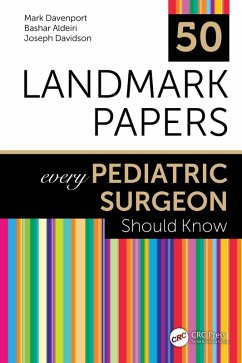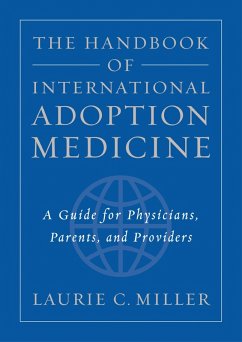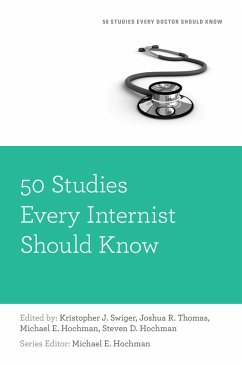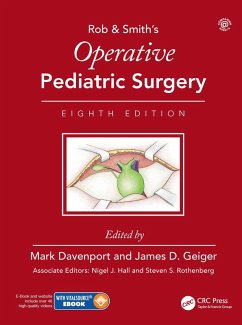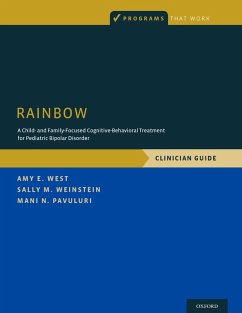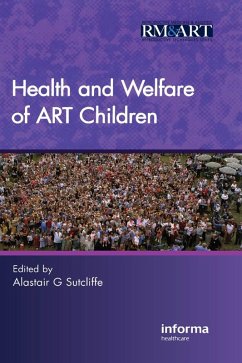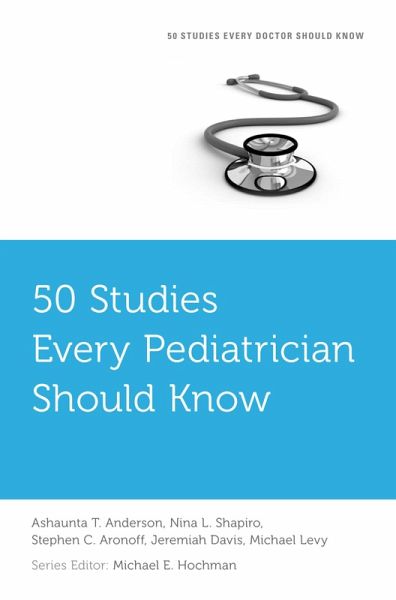
50 Studies Every Pediatrician Should Know (eBook, PDF)
Versandkostenfrei!
Sofort per Download lieferbar
31,95 €
inkl. MwSt.
Weitere Ausgaben:

PAYBACK Punkte
16 °P sammeln!
50 Studies Every Pediatrician Should Know presents key studies that have shaped the current clinical practice of pediatrics. Selected using a rigorous methodology, the studies cover topics including: allergy immunology, behavioral, cardiology, dermatology, endocrinology, ENT, general pediatrics, hematology, infectious disease, neonatology, nephrology, neurology, oncology, ophthalmology, orthopedics, and pulmonary. For each study, a concise summary is presented with an emphasis on the results and limitations of the study, and its implications for practice. An illustrative clinical case conclude...
50 Studies Every Pediatrician Should Know presents key studies that have shaped the current clinical practice of pediatrics. Selected using a rigorous methodology, the studies cover topics including: allergy immunology, behavioral, cardiology, dermatology, endocrinology, ENT, general pediatrics, hematology, infectious disease, neonatology, nephrology, neurology, oncology, ophthalmology, orthopedics, and pulmonary. For each study, a concise summary is presented with an emphasis on the results and limitations of the study, and its implications for practice. An illustrative clinical case concludes each review, followed by brief information on other relevant studies. This is one of the only books of its kind to present a collection of the most influential clinical trials in pediatrics that are detailed enough to be used on rounds, but still easily digestible.
Dieser Download kann aus rechtlichen Gründen nur mit Rechnungsadresse in A, B, BG, CY, CZ, D, DK, EW, E, FIN, F, GR, HR, H, IRL, I, LT, L, LR, M, NL, PL, P, R, S, SLO, SK ausgeliefert werden.




